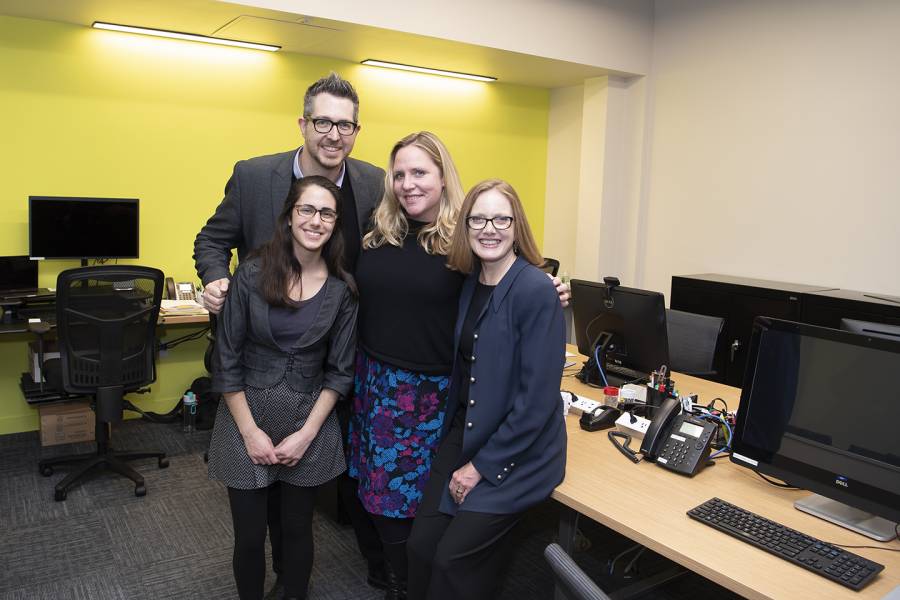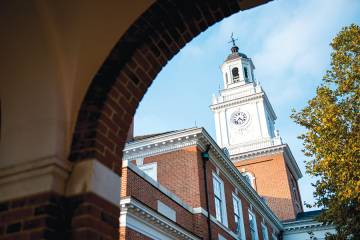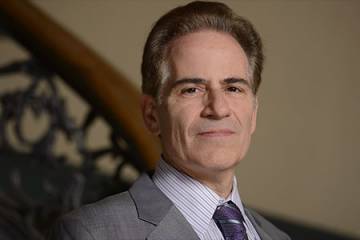No longer confined to the basement of Leakin Hall, career services at the Peabody Institute has undergone transformations of both its physical space and operational mission.
Now called LAUNCHPad, the office has been charged with helping the conservatory's undergraduate and graduate students develop their artistic and professional goals by combining their learning with essential career skills. In addition to managing programs to help students book professional performance opportunities, build job skills, and develop entrepreneurial ventures, LAUNCHPad coordinates the three foundational courses required as part of Peabody's Breakthrough Curriculum, an effort envisioned by Peabody Dean Fred Bronstein to prepare music students for 21st-century careers.
"Career services isn't an exit strategy—it's an opportunity for students to integrate their thinking about their work, their lives, and their futures," says Sarah Hoover, associate dean for innovation, interdisciplinary partnerships, and community initiatives. "By building career services into four years of student activities inside and outside the classroom, we create a model of career services that isn't just an end goal but an immersive experience that involves risk-taking and exploration. And the Breakthrough Curriculum is really built around that vision."
During a ribbon-cutting ceremony Monday, LAUNCHPad debuted its sleek new office space located just outside the campus' dining hall and adjacent to a popular student lounge. The central location was chosen to enable more students to access the services the office provides.
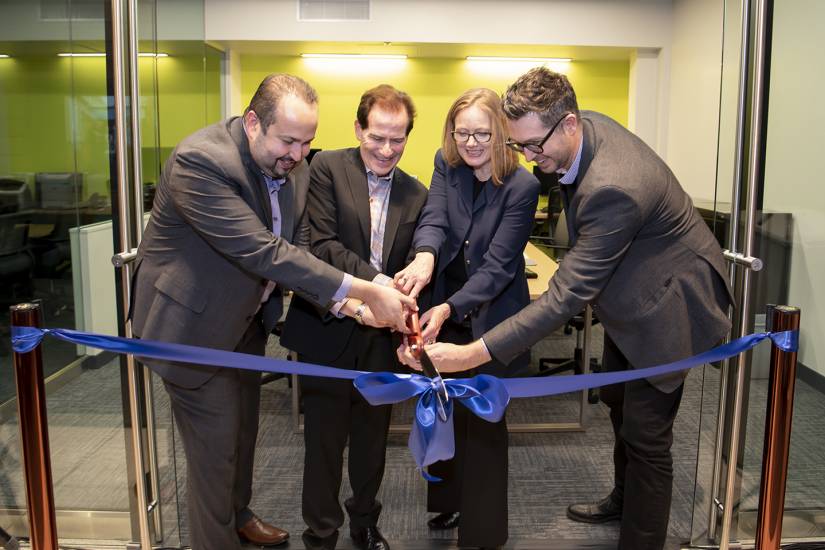
Image caption: From left: Farouk Dey, Fred Bronstein, Sarah Hoover, and Zane Forshee cut a ribbon to open the new LAUNCHPad office space
Image credit: Larry Canner for Johns Hopkins University
"LAUNCHPad is really a physical manifestation of the new direction Peabody has been going in over the last several years," Bronstein said during his remarks at the ceremony. "Under the direction of Zane Forshee, the office's talented staff is reimagining career services so that resources, expertise, and programming are tied into the student experience. It's a really exciting direction for Peabody."
The three required courses coordinated by the office under the Breakthrough Curriculum aim to introduce undergraduate and graduate students to the practical skills they'll need to pursue careers as performers, artists, and educators.
- Exploring Arts Careers introduces first-year undergraduates to the breadth of careers in creative and performing arts and provides an overview of strategies for them to develop their artistic identities.
- Building a Brand and Portfolio teaches students business skills for navigating an evolving professional landscape and instructs them on creating promotional materials to support their artistic careers.
- Pitching Your Creative Idea is an experiential course aimed at teaching students how to design, propose, and evaluate an artistic project. A juried project proposal serves as both the capstone for this course and as a student's entry into a competition for funding to put their ideas into action.
Christina Manceor, assistant director of LAUNCHPad, says that developing the curriculum has been an iterative process and that current versions of these courses have received positive feedback from students.
"This is the first year this particular sequence of courses has been offered," Manceor says. "They allow us to scale our services to reach the full student body earlier in their academic careers."
Students who attended the LAUNCHPad office opening said the courses prompt them to begin thinking about their careers well before they graduate and also provide real-world professional experiences that prepare them for their futures as working musicians and performers.
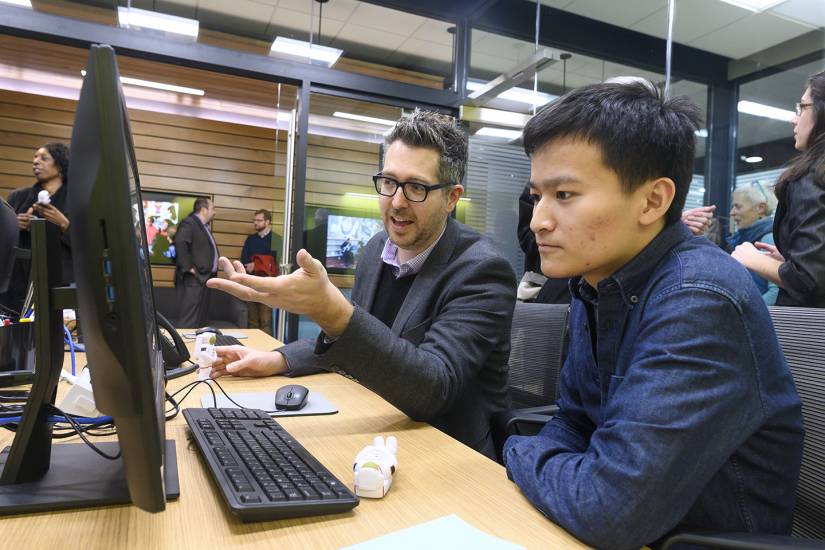
Image caption: During the ribbon-cutting ceremony, LAUNCHPad director Zane Forshee (left) gives a student an overview of the services the office provides
Image credit: Larry Canner for Johns Hopkins University
Hsiao Tsu Huang, a first-year percussionist, says he was inspired by a guest speaker who visited his Exploring Arts Careers class. The guest was a professional violist and registered nurse who performs for patients in hospitals. He says her experiences made him think about ways he could also build community engagement into his career.
"I think it's important to give something back to the community, because as a human being, if I play percussion and no one is listening, how can I call myself a musician?" he says. "Music especially has to be shared."
Hannah Noyes, a second-year master's student studying vocal performance, says her experience as a teaching assistant for the Breakthrough Curriculum courses has given her valuable insights into ways to build her career.
"Seeing instrumentalists who created their own career paths is inspiring to me as a vocalist because we are often guided down one particular path in vocal education," Noyes says. "Classical music needs innovation to continue its legacy, and especially as vocalists, we need to break out of our stereotypes. The courses have helped me keep an open mind in regard to current and future gigs—sometimes opportunities appear when you least expect them to."
Farouk Dey, JHU's vice provost for integrative learning and life design, says LAUNCHPad and the Breakthrough Curriculum provide a model for successfully integrating career services with student learning.
"I haven't seen this anywhere else, that students go through one common curricular experience that helps not only make meaning out of what they are learning but also to prepare for the future," Dey says. "Often I'm caught talking about what helps students be successful after graduation, and that's because every time I have an opportunity I say it: If students have mentoring, and if students have experiential learning, there is no stopping them."
Posted in University News, Student Life
Tagged fred bronstein, farouk dey, launchpad, career services




